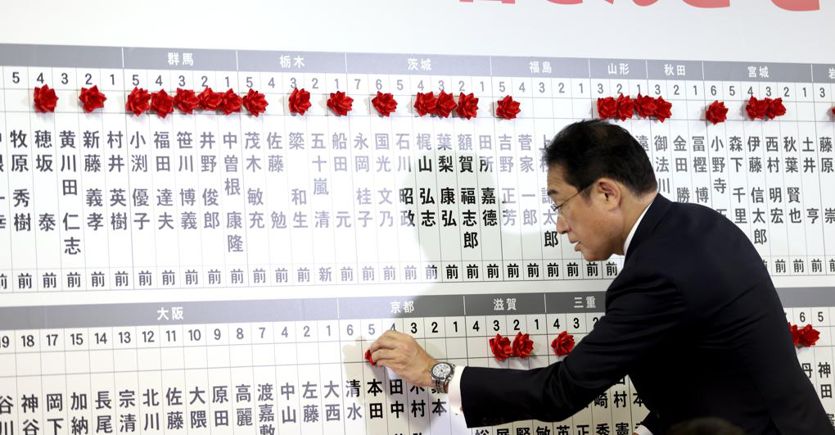Prime Minister Fumio Kishida’s goal was to get a strong mandate to strengthen his grip on his Liberal Democratic Party (LDP) and take Japan beyond the Abenomics. He succeeded in half. With the vote on Sunday 31 October, the LDP remains a majority party, easily exceeding the required threshold of 233 seats. But the result, which sees it drop from 276 to 253 seats (according to projections), is the worst in 12 years.
Overcoming the Abenomics
A decline was widely expected in polls on the eve. The LPD pays for the criticism for the management of the pandemic, the Tokyo Olympics and a growing tiredness for the liberal policies of former premier Shinzo Abe, which have raised company profits and stock market prices, but have not improved conditions middle class and failed to get the country out of deflation.
Not surprisingly, Kishida has promoted a “new capitalism”, capable of combining the needs of economic growth and those of the redistribution of wealth. A distancing from the mix of monetary and budgetary policies desired by Abe, without however repudiating them. Kishida owes a lot to the former prime minister, who supported him in his climb to the party and opened the doors to the executive for him.
The minimum goal
Confirming itself as a majority party was the minimum objective for the LPD, which has always been in power since 1955, except for two brief parentheses. Thanks to the support of the coalition partners, Komeito, the margin on the opposition is comfortable (over 280 seats). “If the coalition is able to maintain the majority, I interpret it as meaning that we have secured a public mandate,” Kishida said.
Having won the presidential elections of the LDP and appointed premier, Kishida decided to dissolve the lower house and go to the early vote, to obtain legitimacy that went beyond the palace games triggered by the resignation of his predecessor, Yoshihide Suga, forced to surrender after not even one year in office.
